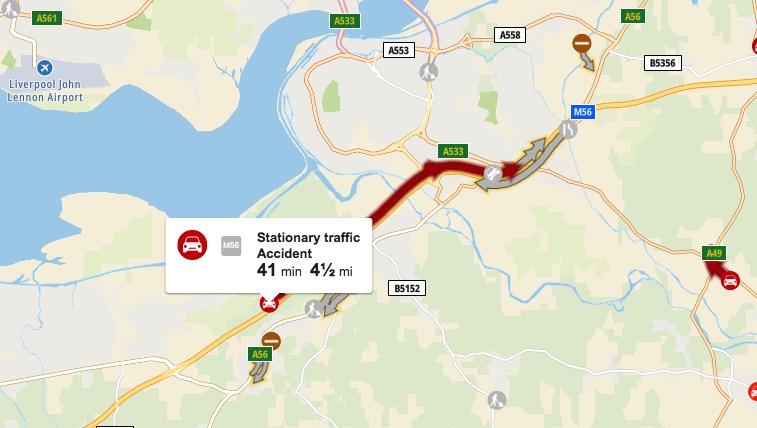A Realistic Look At Escaping To The Country: Challenges And Rewards

Table of Contents
The Allure of Country Living: Rewards and Benefits
The appeal of leaving behind the hustle and bustle of city life for the tranquility of the countryside is strong. Many find the rewards of escaping to the country far outweigh the difficulties. Let's explore the key benefits:
Enhanced Quality of Life
- Improved Well-being: Breathe easier with improved air quality and enjoy the peace and quiet that reduces stress levels significantly. Country living often promotes better mental and physical health.
- Immersive Nature: Embrace the outdoors! Hiking trails, stunning landscapes, and the opportunity for gardening and other outdoor recreation are readily available. Imagine waking up to birdsong instead of traffic noise.
- Stronger Community Bonds: Smaller towns often foster a stronger sense of community. Neighbors know each other, and there's a greater sense of belonging and support.
- Self-Sufficiency: For some, escaping to the country means embracing a more self-sufficient lifestyle. Growing your own food, raising chickens, or even keeping bees becomes a real possibility, although local zoning regulations should be checked first.
Financial Considerations (Potential Savings)
While not guaranteed, country living can offer financial advantages:
- Lower Property Taxes: In many rural areas, property taxes are lower than in urban centers. However, this varies greatly by location, so thorough research is crucial.
- Reduced Commuting Costs: Say goodbye to expensive gas, tolls, and public transportation fees. While commutes may be longer in distance, the overall cost can be lower.
- Lower Cost of Living (Potentially): Depending on the specific location, the overall cost of living can be lower in rural areas. However, access to certain goods and services may be limited, potentially offsetting these savings.
Lifestyle Changes: Embracing a Slower Pace
Escaping to the country often involves a significant shift in lifestyle:
- Slower Pace of Life: Enjoy a more relaxed rhythm, free from the constant pressure of city life.
- Increased Self-Reliance: Learn new skills and become more self-reliant in managing your property and daily life.
- Enhanced Privacy and Space: Enjoy the peace and quiet of a larger property with ample space for yourself and your family.
Facing the Realities: Challenges of Country Living
While the allure is undeniable, it's essential to acknowledge the potential difficulties associated with country living.
Infrastructure and Accessibility: Navigating Rural Limitations
- Limited Internet and Cell Service: Reliable high-speed internet and cell service can be a challenge in some rural areas. This is a crucial factor to consider if you work remotely or rely heavily on technology.
- Longer Commutes: Expect longer commutes to work, schools, and essential services like hospitals and supermarkets.
- Public Transportation Challenges: Public transportation is often limited or non-existent in rural areas. Owning a car is practically essential.
- Healthcare Access: Access to specialized healthcare services may be limited, requiring longer travel times to reach necessary medical facilities.
Financial Considerations (Unexpected Costs): Budgeting for Rural Life
While you might save on some expenses, others may increase unexpectedly:
- Higher Home Maintenance: Larger properties and older homes often require more maintenance and repairs.
- Increased Utility Costs: Heating and cooling costs can be higher in rural areas, particularly in extreme climates. Efficient appliances and proper insulation become even more important.
- Higher Repair Costs: Finding reliable and affordable contractors can be challenging in some rural areas. Home repairs and renovations may be more expensive.
- Well and Septic System Maintenance: If your property relies on a well and septic system, factor in the costs of regular maintenance and potential repairs.
Social and Community Aspects: Adapting to Rural Social Dynamics
- Limited Entertainment and Culture: Access to cultural events, entertainment options, and diverse social groups may be more limited than in urban areas.
- Potential for Isolation: Those used to city life may find the slower pace and lack of immediate social interaction challenging. Building a strong support network is crucial.
- Self-Reliance and Adaptability: You'll need to be more self-reliant and adaptable to overcome the challenges of rural living.
Making the Transition: Practical Steps for Escaping to the Country
Planning is paramount when escaping to the country. Don't rush into this major lifestyle change without careful consideration.
Research and Planning: Laying the Groundwork
- Location Research: Thoroughly research potential locations, considering proximity to work, schools, and healthcare.
- Local Regulations: Understand local zoning laws, building codes, and property restrictions.
- Detailed Budget: Develop a comprehensive budget that accounts for all potential costs, including moving expenses, home repairs, and ongoing maintenance.
Finding the Right Property: Securing Your Rural Haven
- Experienced Realtor: Work with a realtor familiar with rural properties and the unique challenges and opportunities they present.
- Property Inspection: Conduct a thorough inspection of any potential property, paying close attention to structural issues and essential systems.
- Essential System Assessment: Assess the condition of the well water, septic system, and proximity to utilities.
Building a Support Network: Integrating into Your New Community
- Community Engagement: Connect with local community groups and organizations to build relationships and integrate into the local culture.
- Local Tradespeople: Establish relationships with local tradespeople for home maintenance and repairs.
Conclusion: Your Escape to the Country Awaits
Escaping to the country offers a compelling vision of a simpler, more fulfilling life. However, it's crucial to approach this transition with realistic expectations. Weighing the rewards of enhanced quality of life and potential cost savings against the challenges of limited infrastructure and potential isolation is essential. Thorough research, careful planning, and a realistic assessment of your needs and resources will help you determine if “escaping to the country” is the right adventure for you. Start planning your escape to the country today – it's a journey worth considering!

Featured Posts
-
 New York Times Connections Game Puzzle 646 Solutions March 18 2025
May 24, 2025
New York Times Connections Game Puzzle 646 Solutions March 18 2025
May 24, 2025 -
 Major Delays On M56 Near Cheshire Deeside Due To Collision
May 24, 2025
Major Delays On M56 Near Cheshire Deeside Due To Collision
May 24, 2025 -
 Konchita Vurst Ot Evrovideniya 2014 K Roli Devushki Bonda Put Pobeditelya
May 24, 2025
Konchita Vurst Ot Evrovideniya 2014 K Roli Devushki Bonda Put Pobeditelya
May 24, 2025 -
 M56 Traffic Disruption Cheshire And Deeside Delays
May 24, 2025
M56 Traffic Disruption Cheshire And Deeside Delays
May 24, 2025 -
 Glastonbury 2024 Unconfirmed Band Lineup Leak
May 24, 2025
Glastonbury 2024 Unconfirmed Band Lineup Leak
May 24, 2025
Latest Posts
-
 Massachusetts Authorities Seize Over 100 Firearms Charge 18 Brazilian Nationals
May 24, 2025
Massachusetts Authorities Seize Over 100 Firearms Charge 18 Brazilian Nationals
May 24, 2025 -
 18 Brazilian Nationals Face Charges In Large Scale Massachusetts Gun Trafficking Ring
May 24, 2025
18 Brazilian Nationals Face Charges In Large Scale Massachusetts Gun Trafficking Ring
May 24, 2025 -
 Net Asset Value Nav Explained Amundi Dow Jones Industrial Average Ucits Etf
May 24, 2025
Net Asset Value Nav Explained Amundi Dow Jones Industrial Average Ucits Etf
May 24, 2025 -
 Crackdown On Gun Trafficking Nets 100 Firearms 18 Brazilian Arrests In Mass
May 24, 2025
Crackdown On Gun Trafficking Nets 100 Firearms 18 Brazilian Arrests In Mass
May 24, 2025 -
 Amundi Dow Jones Industrial Average Ucits Etf Understanding Net Asset Value Nav
May 24, 2025
Amundi Dow Jones Industrial Average Ucits Etf Understanding Net Asset Value Nav
May 24, 2025
